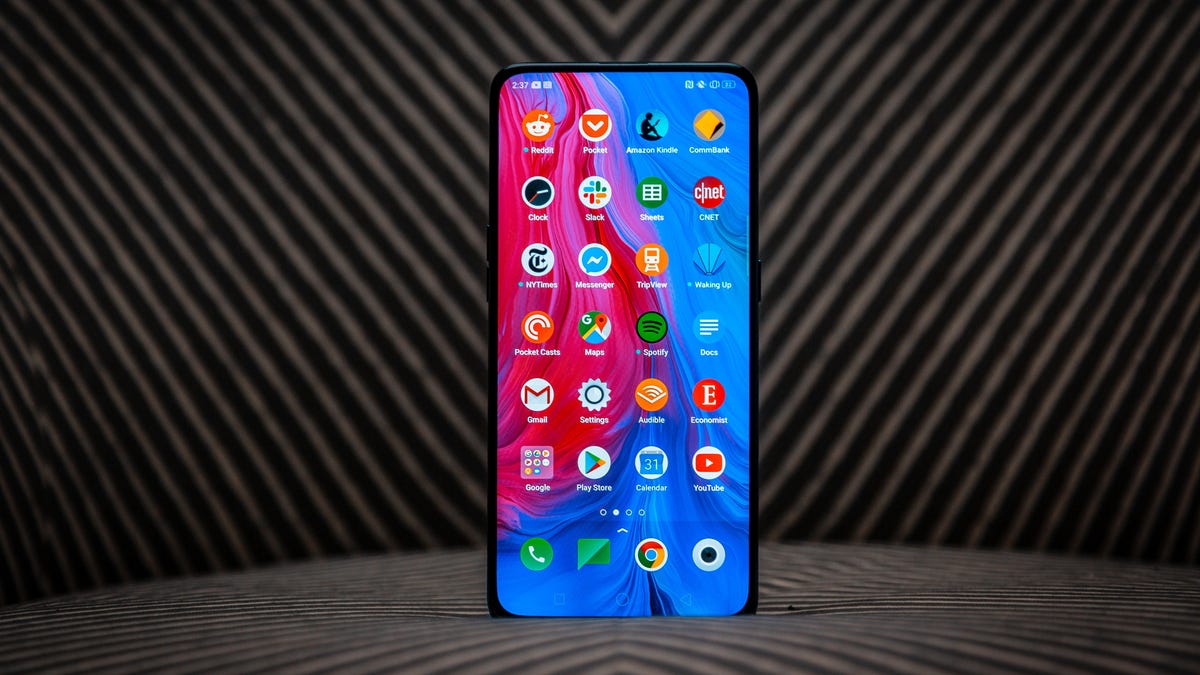5G doesn't just need to be fast -- it needs to be free
Commentary: Let's make it as easy as possible for everyone to upgrade.

The Oppo Reno 5G is an affordable 5G phone, but it isn't available in the US.
5G, the next generation of wireless technology, promises to do a lot of things. It'll allow you to download big games and movies in a flash. It'll connect all sorts of devices around you, from street lamps to self-driving cars. It'll enable new fields such as streaming VR experiences and telemedicine.
There's at least one more potential impact coming: a hit to your wallet.
Wireless carriers rarely like to give anything away for free. And given the hype and excitement over 5G, it seems like a perfect time to tack another charge onto your mobile plan.
My advice to carriers? For once, lay off the fees.
CNET's test of 5G services around the world, encompassing four countries, 11 cities and seven carriers, found a mixed bag of incredible speeds and wildly inconsistent coverage. In short, 5G is going to be a shaky experience for anyone looking to make the leap, and we advise that you exercise a little patience before buying a 5G phone.
Growing pains are inevitable as new networks spring up, and that's all the more reason for carriers to resist the urge to charge extra fees for the privilege of accessing 5G services. Early adopters shouldn't be taxed for the work-in-progress nature of these networks.
Verizon, for instance, waived the $10-a-month fee for 5G for customers who bought 5G Moto Mod or Galaxy S10 5G -- a smart move considering how small a footprint is available. But the company should go the extra mile and eliminate the fee altogether.
A Verizon spokesman declined to talk about what the company has in store.
Sprint doesn't charge a fee, but requires you to sign up for its $80 "Unlimited Premium" plan.
T-Mobile CTO Neville Ray told me back in March that he didn't think carriers should charge extra for 5G, a point reiterated by CEO John Legere.
"You can't go to a US consumer and charge them a big premium and it works on three street corners," Ray said.
Hopefully, that won't change once T-Mobile and the rest of the carriers build out their 5G networks to the point where those growing pains go away. Given the rumored price locks T-Mobile and Sprint are willing to agree to in order to get their merger completed, that's likely the case.
Verizon's 5G tests were fast, but the coverage was limited.
AT&T, which launched its 5G network for businesses in December but hasn't made it available to consumers, didn't provide specifics about the pricing plans for its business customers.
"Our focus is on providing the best experiences at competitive prices," said a company spokeswoman.
Beyond fees, the carriers should remove the data limitations that call for throttling once you've consumed a certain amount of data. Under 4G, Verizon's $60-a-month "AboveUnlimited" plan, for instance, gives the carrier the right to limit you if you've hit 75 gigabytes of data. T-Mobile's $50 "Magenta Plus" plan has a throttling limit of 50B before the carrier can slow you down during heavy congestion periods.
The carriers have been doing the right thing initially. Verizon, for instance, doesn't have any restrictions when you're on its 5G network.
This is something every carrier should consider. If you're going to be enjoying 5G speeds regularly, you'll hit those limits pretty quickly. It's a problem CNET editor Daniel Van Boom faced during his 5G speed tests in Australia.
Sprint offers lower speeds, but better coverage under 5G.
These requests aren't radical. When the carriers introduced 4G LTE service, they didn't charge an extra fee. They didn't have throttling limits in place either.
Of course, 4G's enhanced speed spurred an explosion of data usage -- something the carriers have had to manage over the last decade.
And 5G will serve as the catalyst for new services and applications. But in order to get to that bright future, we need to ensure a wide highway that's free of tolls.
That'll make the little speedbumps we've been encountering along the way that much easier to tolerate.
Originally published July 5 at 5 a.m. PT.
Update, 6:25 a.m.: To include a comment from AT&T.

